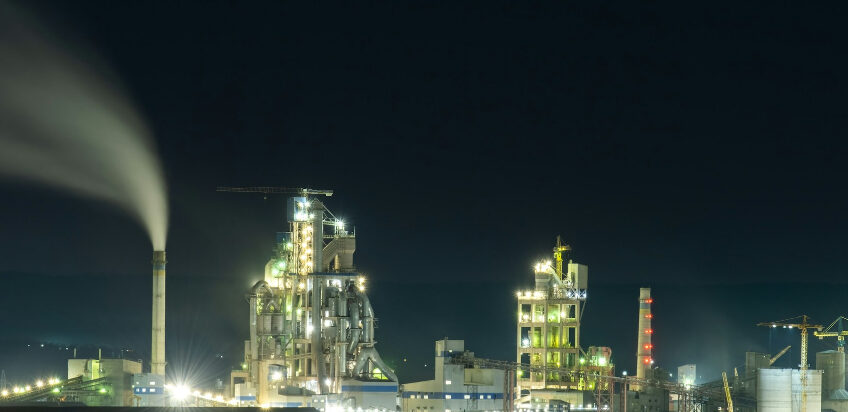Hazardous waste management is a critical environmental and public health issue. In New Jersey, where industrial activities are prolific and the population dense, the regulation of hazardous waste takes on added significance. This blog post delves deep into the legal requirements for handling hazardous waste in New Jersey, exploring state regulations, compliance obligations, and the broader implications for businesses and the environment.
Overview of Hazardous Waste in New Jersey
New Jersey’s industrial history has left a legacy of pollution challenges, including the management of hazardous waste. Hazardous waste in New Jersey includes but is not limited to industrial by-products, chemicals, and medical waste, all of which can pose significant risks to health and the environment if not properly managed.
Federal and State Regulatory Framework
The management of hazardous waste in New Jersey is primarily governed by both federal and state laws. At the federal level, the Resource Conservation and Recovery Act (RCRA) provides the framework for the management of hazardous waste from its creation to disposal. New Jersey has its own set of regulations that work in tandem with federal laws but also include more stringent requirements in certain areas.
- Resource Conservation and Recovery Act (RCRA): Under RCRA, hazardous waste must be tracked from cradle to grave meaning from its generation to its ultimate disposal. This includes stringent record-keeping, reporting requirements, and procedures for handling, transporting, and disposing of hazardous waste.
- New Jersey Department of Environmental Protection (NJDEP): NJDEP enforces state regulations that often exceed federal standards. NJDEP’s regulations cover the identification, classification, generation, transportation, treatment, storage, and disposal of hazardous waste.
Key State-Specific Regulations
New Jersey has established specific regulations that address various aspects of hazardous waste management:
- Classification and Identification: New Jersey requires that any entity generating hazardous waste correctly classify and identify waste according to state-specific guidelines. This includes determining if waste is acutely hazardous, which imposes additional handling requirements.
- Licensing and Permitting: Facilities that treat, store, or dispose of hazardous waste in New Jersey must obtain the appropriate permits. These facilities are also subject to rigorous inspections to ensure compliance with environmental standards.
- Transportation: The transportation of hazardous waste within or through New Jersey requires compliance with both NJDEP regulations and U.S. Department of Transportation (DOT) regulations. Transporters must be licensed and follow strict documentation procedures.
- Disposal: Disposal of hazardous waste must be done at licensed facilities. New Jersey imposes specific design and operation standards for these facilities to minimize environmental impact.
- Training and Recordkeeping: Facilities dealing with hazardous waste must ensure that their staff are adequately trained according to both federal and state mandates. Comprehensive records must be kept and be readily available for inspection.
Compliance Obligations
Compliance with hazardous waste regulations in New Jersey requires adherence to a complex set of rules and procedures. Non-compliance can result in severe penalties, including fines and criminal charges. Businesses must:
- Maintain accurate records of all hazardous waste activities.
- Ensure that all employees handling hazardous waste are properly trained.
- Regularly audit and inspect their facilities to ensure compliance.
- Develop and implement a contingency plan for handling emergencies involving hazardous waste.
Legal Challenges and Considerations
Businesses in New Jersey face several legal challenges in the context of hazardous waste management:
- Navigating Dual Regulations: Complying with both federal and state regulations can be complex, requiring businesses to be continually informed of legislative updates.
- Liability Issues: Generators of hazardous waste can be held liable for damages caused by improper disposal, even after the waste leaves their facility.
- Environmental Justice: New Jersey prioritizes environmental justice issues, focusing on how hazardous waste facilities impact low-income and minority communities. Businesses must consider these factors in site selection and operations to avoid legal and community relation problems.
Conclusion
The legal landscape for handling hazardous waste in New Jersey is stringent and complex, reflecting the state’s commitment to environmental protection and public health. Businesses operating in this space must prioritize compliance to avoid legal repercussions and contribute positively to the state’s environmental goals. Staying informed, proactive in compliance strategies, and engaged with community and regulatory developments is essential for any entity dealing with hazardous waste in New Jersey. As the state continues to lead with strict environmental standards, the legal requirements are likely to evolve, requiring ongoing vigilance and adaptation from all stakeholders involved.
